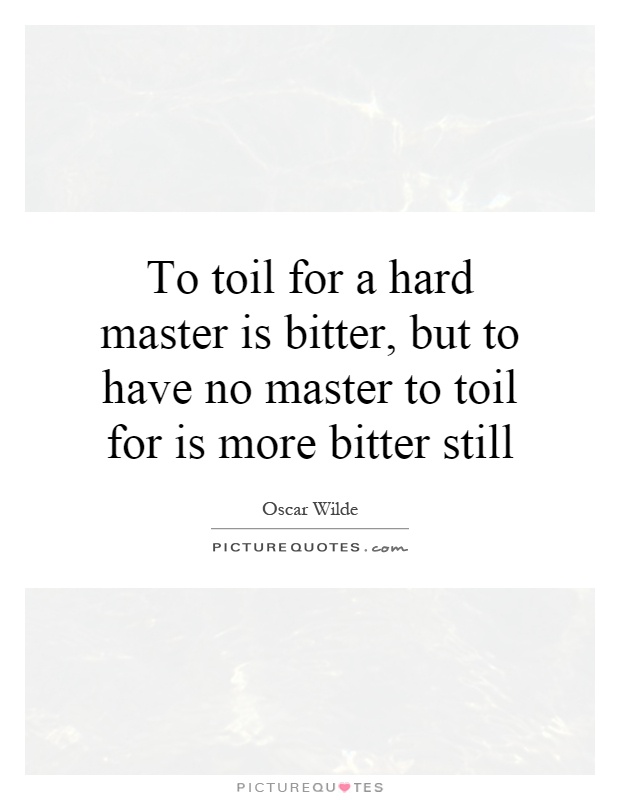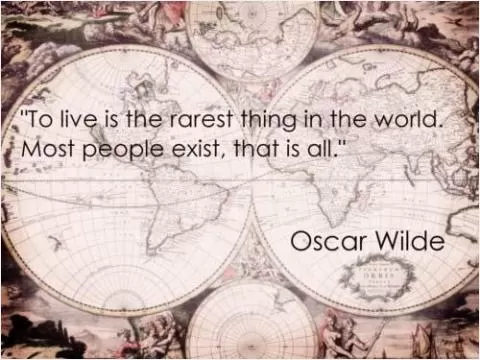To toil for a hard master is bitter, but to have no master to toil for is more bitter still

To toil for a hard master is bitter, but to have no master to toil for is more bitter still
Oscar Wilde, the renowned Irish playwright and poet, was known for his wit, humor, and sharp social commentary. In his works, Wilde often explored themes of class struggle, power dynamics, and the complexities of human relationships. One of his most famous quotes, “To toil for a hard master is bitter, but to have no master to toil for is more bitter still,” encapsulates the paradoxical nature of labor and servitude in society.Wilde’s quote speaks to the inherent struggle of the working class, who are often caught between the oppressive demands of their employers and the uncertainty of unemployment. In a capitalist society, where labor is commodified and workers are seen as expendable resources, the idea of toiling for a hard master can be a harsh reality for many. The exploitation, mistreatment, and lack of respect that workers face at the hands of their employers can indeed be bitter and demoralizing.
However, Wilde also suggests that the alternative – having no master to toil for – can be even more bitter. In a world where work is essential for survival and self-worth, the absence of a master or employer can lead to feelings of aimlessness, purposelessness, and despair. Without a sense of direction or structure, individuals may struggle to find meaning in their lives and may feel lost in a sea of uncertainty.
Wilde’s quote can also be interpreted in a broader sense, beyond the realm of labor and servitude. It speaks to the human need for structure, guidance, and purpose in life. While having a hard master may be difficult, it provides a sense of order and direction. Without a master to toil for, individuals may feel adrift and disconnected from the world around them.
Overall, Wilde’s quote serves as a poignant reminder of the complexities of human existence and the delicate balance between freedom and servitude. It challenges us to reflect on the nature of work, power, and autonomy in society, and to consider the ways in which we navigate the challenges of labor and self-determination.












 Friendship Quotes
Friendship Quotes Love Quotes
Love Quotes Life Quotes
Life Quotes Funny Quotes
Funny Quotes Motivational Quotes
Motivational Quotes Inspirational Quotes
Inspirational Quotes